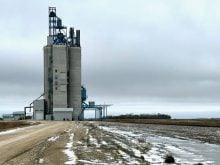Japan is grappling with a string of disasters, but its advanced transportation system is managing to keep imports of Canadian crops and meat flowing, industry sources say.
“It’s been no real impact for us,” said Bob Lafond of exporter Roy Legumex.
The Japanese earthquake and tsunami struck northeastern Japan most severely, ravaging coastal communities and wrecking a number of ports.
But most Canadian agricultural goods already flow to the southern ports that were mostly undamaged. Supplies originally destined for northern Japan are now being rerouted.
Read Also

Farming Smarter to hold Agronomy Battles series
Southern Alberta non-profit research institute hope grassroots sessions with producers help focus future research on cover crops, strip tillage and herbicide resistance
“All the canola crushing plants are in the south,” said Don Roberts of Ag Commodity Research’s Canolainsight newsletter.
“I don’t think it’s a major problem right now.”
Japan tendered for wheat and canola shipments last week, sources say, and there is no sign that food shipments to Japan will significantly fall.
Shipments of animal feed and feedgrain, such as corn, appear to be more affected because many feeding operations are located in northeastern areas of Japan. Some feed compound processors are believed to have suffered damage and may be cancelling or reselling feed grain imports, a trader said.
Jeffrey Landsberg, managing director of Commodore Research, said grain was getting preferential treatment by Japanese authorities.















